Recent Blog Posts
Can You Get Removed from the Illinois Sex Offender Registry?
 Being on the sex offender registry in 2026 affects nearly every part of your life. It impacts where you can live, what jobs you can get, and how your neighbors see you. According to groups like groups tracking this data, there are over 30,000 registered sex offenders in Illinois. Many of the people on this list want to know if they can ever clear their names and move forward with their lives.
Being on the sex offender registry in 2026 affects nearly every part of your life. It impacts where you can live, what jobs you can get, and how your neighbors see you. According to groups like groups tracking this data, there are over 30,000 registered sex offenders in Illinois. Many of the people on this list want to know if they can ever clear their names and move forward with their lives.
Illinois law allows some people to petition the court to have their names removed from the sex offender registry, but the process is complicated and not everyone qualifies. Whether you are eligible depends on a few things:
-
The specific crime you were convicted of
-
How long ago the conviction happened
-
Whether you meet all the legal requirements under Illinois law
How to Handle the Media During a High-Profile Criminal Trial
 Camera crews might be parked outside your house and reporters are calling your phone. Maybe your name is trending on Twitter. You’re seeing strangers posting opinions about you without knowing a single fact.
Camera crews might be parked outside your house and reporters are calling your phone. Maybe your name is trending on Twitter. You’re seeing strangers posting opinions about you without knowing a single fact.
Can you believe you’re in this situation? Most people who find themselves here say they can’t, either. When you are facing serious criminal charges in a high-profile case, the media can destroy your defense before you ever step into a courtroom.
Our Cook County criminal defense attorneys are fearless in the face of media pressure. We handle high-profile and celebrity cases for people accused of extremely serious crimes, including murder and felony federal drug crimes. When you need to navigate both the legal system and the media storm surrounding your case, call Komie and Associates at 312-263-2800.
How Long Does It Take to Bring Your Child Back in a Hague Proceeding?
 If your ex takes your child to another country without your permission, you likely find yourself in a scenario from every parent’s worst nightmares. The good news is that if your child is in a country that is a member of the Hague Convention, the law is on your side. But how long does a Hague Convention custody proceeding take? When will you see your child again?
If your ex takes your child to another country without your permission, you likely find yourself in a scenario from every parent’s worst nightmares. The good news is that if your child is in a country that is a member of the Hague Convention, the law is on your side. But how long does a Hague Convention custody proceeding take? When will you see your child again?
The Hague Convention on the Civil Aspects of International Child Abduction is designed to resolve these cases quickly because the treaty recognizes that children wrongfully removed from their home country suffer harm the longer they stay away. But the actual timeline depends on several factors. Our Hague Convention child abduction attorney can discuss your case with you and get started as quickly as possible.
Can I Face Criminal Charges for Protesting ICE in Chicago?
 In recent years, large-scale Immigration and Customs Enforcement (ICE) operations have led to protests across the Chicago area. These events sometimes result in arrests when law enforcement claims that protesters interfered with ICE activities. Some protests have even led to physical altercations with agents or the use of tear gas to disperse crowds.
In recent years, large-scale Immigration and Customs Enforcement (ICE) operations have led to protests across the Chicago area. These events sometimes result in arrests when law enforcement claims that protesters interfered with ICE activities. Some protests have even led to physical altercations with agents or the use of tear gas to disperse crowds.
While ICE operations focus on identifying and detaining people suspected of violating immigration law, many others may be caught up in related protests. When people are accused of interfering with ICE agents, they could face criminal charges. Those who are arrested can address these charges with the help of an attorney who has experience defending clients in federal criminal cases.
Not Registering as a Sex Offender Can Lead to More Felony Charges
 In Illinois, certain sex crime convictions mean you need to register as a sex offender. However, many people are surprised to learn that missing a registration deadline or not updating information can lead to additional felony charges. This is true even if it was a simple mistake.
In Illinois, certain sex crime convictions mean you need to register as a sex offender. However, many people are surprised to learn that missing a registration deadline or not updating information can lead to additional felony charges. This is true even if it was a simple mistake.
If you are accused of not following sex offender registration rules, the consequences can be serious. You need legal representation now. Speaking with a DuPage County, IL sex crimes defense lawyer is the first step to protecting your rights.
As of September 2025, the Illinois Sex Offender Registration Act (730 ILCS 150/) requires people convicted of certain sex crimes to register with local law enforcement within a set timeframe and to update their registration regularly. The rules are strict, and prosecutors treat violations as separate criminal offenses.
Can You Be Federally Prosecuted for a Ponzi Scheme?
 Ponzi schemes are one of the most infamous financial frauds in the world of white-collar crime. Named after Charles Ponzi, who orchestrated the most infamous version of this scam in the 1920s, Ponzi schemes remain a highly effective but illegal method of defrauding investors. If you or someone you know is under investigation or facing charges related to a Ponzi scheme, you might be wondering: Can you face federal prosecution?
Ponzi schemes are one of the most infamous financial frauds in the world of white-collar crime. Named after Charles Ponzi, who orchestrated the most infamous version of this scam in the 1920s, Ponzi schemes remain a highly effective but illegal method of defrauding investors. If you or someone you know is under investigation or facing charges related to a Ponzi scheme, you might be wondering: Can you face federal prosecution?
The answer is, unfortunately, yes. Ponzi schemes often involve large-scale fraud that crosses state lines or affects interstate commerce, making it a target for federal prosecutors. In this blog post, we will explore how federal charges related to Ponzi schemes work, what kind of penalties you might face, and how a skilled Illinois federal criminal defense lawyer can help you navigate these serious charges.
Can You Be Prosecuted in Illinois for Failing to Report Foreign Income?
 U.S. citizens and permanent residents are obligated to report their income to the Internal Revenue Service (IRS), including any income earned in foreign countries. If you live in Illinois and fail to report foreign income, you could face serious legal consequences, including criminal prosecution on both a state and federal level.
U.S. citizens and permanent residents are obligated to report their income to the Internal Revenue Service (IRS), including any income earned in foreign countries. If you live in Illinois and fail to report foreign income, you could face serious legal consequences, including criminal prosecution on both a state and federal level.
As of July 2025, aggressive enforcement of tax evasion and fraud laws is on the rise in Illinois. If you are under investigation for failing to disclose foreign income or you suspect a tax issue might become a criminal matter, speak with an experienced Will County, IL criminal defense attorney who has experience handling white collar offenses.
What Does the Law Say About Reporting Foreign Income?
Under federal law, all U.S. taxpayers must report foreign income on their annual tax return. This requirement includes wages, interest, dividends, rental income, and income from foreign investments. Depending on your circumstances and assets, you may also need to file additional forms. Some examples include the FBAR (Foreign Bank Account Report), which is required under the Bank Secrecy Act if you have over $10,000 in foreign accounts, or the Foreign Account Tax Compliance Act (FATCA) Form 8938.
Preliminary Hearing vs. Grand Jury in Illinois
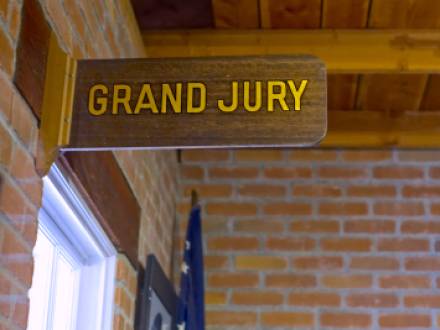 The grand jury plays a role in our criminal justice system. Grand juries are used in federal crimes, and all but two states and Washington, D.C. also use grand juries, usually for more serious crimes. While having a grand jury determine whether you will face criminal charges can be scary, it is essentially the same thing as a preliminary hearing. The primary difference is that a judge decides whether there is sufficient evidence against you for a trial in a preliminary hearing, while the 16 people that make up an Illinois grand jury decide whether you will be indicted and face trial.
The grand jury plays a role in our criminal justice system. Grand juries are used in federal crimes, and all but two states and Washington, D.C. also use grand juries, usually for more serious crimes. While having a grand jury determine whether you will face criminal charges can be scary, it is essentially the same thing as a preliminary hearing. The primary difference is that a judge decides whether there is sufficient evidence against you for a trial in a preliminary hearing, while the 16 people that make up an Illinois grand jury decide whether you will be indicted and face trial.
Under the Illinois Constitution, you cannot face trial for a criminal offense that carries a prison sentence without having first been indicted by a grand jury or having a judge in a preliminary hearing find there is probable cause for a trial. There are similarities and differences between a preliminary hearing and a grand jury, detailed below. In either case, you will benefit from having a highly experienced Skokie, IL criminal defense lawyer by your side who will build a strong defense on your behalf.
String of Sexual Assaults Spanning Three Years Ends in Arrest
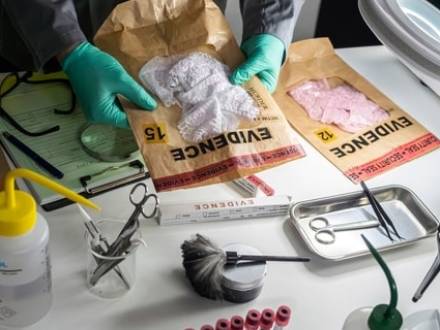 A series of sexual assaults in Chicago that spanned almost three years has resulted in the arrest of a man police say "hunted" his victims. The sexual assaults occurred in some of the most sought-after neighborhoods in the city. The 36-year-old man faces 18 charges related to five attacks. These charges include home invasion, strangulation with a dangerous instrument, sexual assault, and kidnapping.
A series of sexual assaults in Chicago that spanned almost three years has resulted in the arrest of a man police say "hunted" his victims. The sexual assaults occurred in some of the most sought-after neighborhoods in the city. The 36-year-old man faces 18 charges related to five attacks. These charges include home invasion, strangulation with a dangerous instrument, sexual assault, and kidnapping.
The dates of the alleged attacks are from 2022 to February 2025, with no known assaults between July 2022 and January 2025, when the attacks resumed. The alleged perpetrator was returning from a trip to Algeria when he was arrested at O’Hare International Airport. Prosecutors on the case say that video, DNA evidence, and victim statements will be used to prove the charges.
What Can You Do When Your Child Is Taken Out of the Country?
 Custody disputes during a divorce can be contentious and complex on their own, but when one parent removes a child from the U.S. without the approval of the other, the issues become exponentially more difficult, crossing over into the criminal law realm. In some cases, the country to which the child has been removed may not be a signatory to the Hague Convention. This makes resolving the issue considerably more complex.
Custody disputes during a divorce can be contentious and complex on their own, but when one parent removes a child from the U.S. without the approval of the other, the issues become exponentially more difficult, crossing over into the criminal law realm. In some cases, the country to which the child has been removed may not be a signatory to the Hague Convention. This makes resolving the issue considerably more complex.
Through the Department of Justice, removing a child to another country is punishable by a fine, imprisonment for up to three years, or both. The Federal offense for international child abduction cases was created to supplement the existing State remedies in parental abduction cases, including the use of Unlawful Flight to Avoid Prosecution (UFAP) warrants.


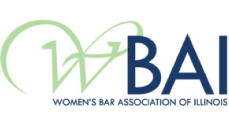
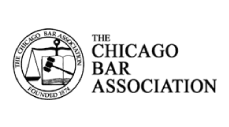

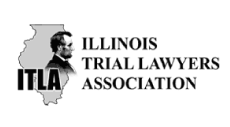

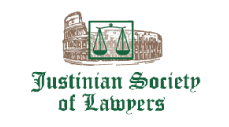

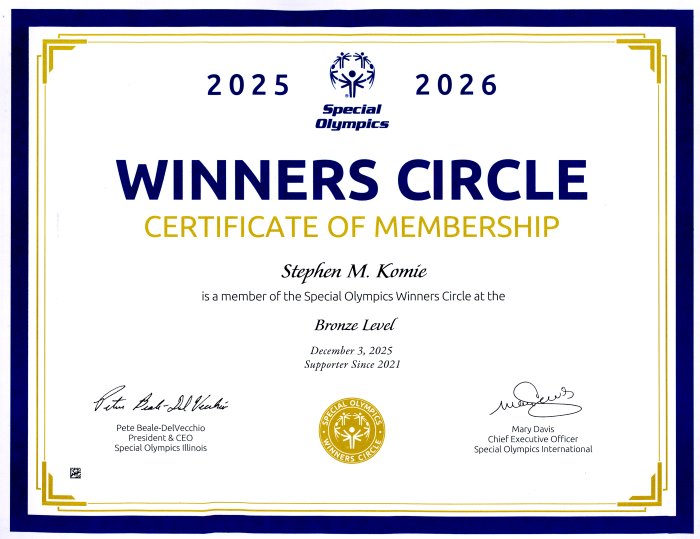
 Map & Directions
Map & Directions




